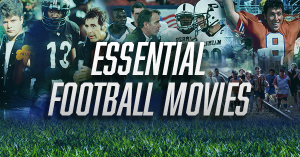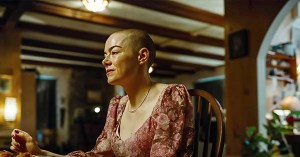Five Favorite Films with Greg Mottola
The Superbad director is back with his semi-autobiographical comedy, Adventureland
Most directors debut their deeply personal passion project before moving on to studio gigs, but indie helmer-turned-Apatow Buncher Greg Mottola (The Daytrippers, Superbad) flipped the script with Adventureland, his semi-autobiographical tale of love, angst, ’80s pop and corndogs that opens nationwide this week. Adventureland follows recent college grad James Brennan (Jesse Eisenberg) — an uptight, overeducated intellectual who reads poetry “for fun” — who takes a job at a low-rent carnival one summer working with excitable bosses (SNL‘s Bill Hader and Kristen Wiig), unmotivated slackers (Martin Starr of Freaks and Geeks), a surly, punk-loving love interest (Twilight‘s Kristen Stewart), and lots of righteous retro tunes. (Falco’s “Rock Me Amadeus” has never borne such loathing, or been heard so often, since 1985.)
But unlike Superbad, Adventureland isn’t all raunch and giggles — it’s a bittersweet comedy, a nostalgic look at self-discovery and first love that simultaneously provokes laughs and stumbles into moments of poignant beauty. Writer-director Greg Mottola took time out from prepping his next film (the geek road trip movie Paul, starring Simon Pegg and Nick Frost) to share his favorite movies with RT, which range from Truffaut to Allen to Fellini — auteurs whose works similarly explore the spaces between love, humor, and the painful glories of growing up. “I didn’t want to do an ironic list or just include movies I think sounded cool,” he said. “These are five movies that for whatever reasons I re-watch insanely, and informed me.”
2001: A Space Odyssey (1968, 96% Tomatometer)
My parents took me to see it in a re-release — it came out in the ’60s and they re-released it in the early ’70s — and I was only seven years old, so it totally blew my mind. My parents, I think, were just completely bored and baffled by it, but I was obsessed with it. It stuck in my head, and every time it came on television I would watch it, and I saw it again in the theater as a teenager; I would go to see it whenever they revived it. It was just a movie I’ve watched a lot. I think part of the reason is…when I was a kid, I didn’t know what to make of it. It was so unlike what I’d been exposed to on TV, or by watching Disney films in the theater. It was so fascinating to me. It has a really unique status, which is in my mind like a big Hollywood epic movie about esoteric ideas — which had never really happened before that, and I don’t think it’s going to happen again. No one would ever spend that kind of money on a movie that big, and with that scope, and be that strange and slow and oblique and unexplained.
Some people, of course, think it’s incredibly pretentious; I think the ideas in it are really fascinating. That Kubrick meticulousness is incredible. But part of what makes it a great movie, I think, is that as it proceeds it turns into this really intimate kind of horror-thriller — with HAL — and when I think, “Who’s a great writer who wrote in that style?,” I think Edgar Allan Poe in outer space. It becomes this real, psychological, bizarre, unexplainable thing about a murdering supercomputer! Those are some of the most handsome, greatest, cinematic scenes I’ve ever seen, so the fact that it was attached to this esoteric thing… To me, it works on so many levels. And the design, and the use of music…there’s nothing else quite like it.
The 400 Blows (1959, 100% Tomatometer)
One of the reasons this movie is important to me is that I’m a big fan of personal storytelling; people who tell their own stories and tell them vividly and honestly, and without sentimentality. It’s such a beautiful, naturalistic film, but unlike a lot of movies about children, it is devoid of sentimentality, but it’s also incredibly rich with emotion, which are two different things.
It’s a painful movie in a lot of ways, but it’s just never cheap. There’s nothing cheap about the depiction of that young man’s life. It’s also one of the best child performances I’ve ever seen in a movie, because he’s a very specific character, but there’s nothing about him that feels forced, or that the filmmakers are trying to make you like him or pity him in a phony way. Jean-Pierre Leaud clearly had something special that is fascinating to watch; he’s really funny and charming, but also it’s strange to see a child character depicted so richly — he’s got flaws, there are sh***y things about him, but he captures all of it.
Manhattan (1979, 98% Tomatometer)
I love Woody Allen‘s movies, and it’s hard for me to pick only one, but I’d pick Manhattan because so many of his films feel influenced by his heroes — you see some Bergman or Fellini or the Marx Brothers or whoever — and to me Manhattan is the one that most captures Woody. Even Annie Hall has bits of Amarcord in it; it’s a perfect movie, and it’s unique, but Manhattan seems to be the one where Woody does everything he does in his own particular way.
One of the things I love about his movies is the tension between the sort of romantic ideals versus his true skepticism about human nature. There’s always this push, this back and forth, about how he loves people and hates people; the misanthropy and the idealism fight each other constantly in the movie, and that’s why I think his films have a special quality. Manhattan has beautiful cinematography and the Gershwin music, and the characters are actually pretty dark and lost and restless, and unhappy. You mix it together and I find it really fascinating. I know some people are really creeped out by him and the girl, but we’ll skip over that.
The Godfather Part II (1974, 98% Tomatometer)
I’m going Part Two only — I love Part One, but there’s something about the second film that takes the perfection of the first one and enriches it. Maybe it’s the novelistic detail, the flashback structure. I don’t know any other movie where the flashbacks are so long. I mean, the flashbacks aren’t just interspersed; they are entire long chapters of the movie. Somehow, with the contrast of the two stories unfolding — these two rich stories, the De Niro one and the Pacino one — all of the Shakespearean themes of the Godfather movies become so poignant. Also, it’s probably got the best cast of any American film, ever, down to every last character actor: Lee Strasberg is Hyman Roth; there’s this Fellini actor, Leopoldo Trieste — he’s in scenes with De Niro, and he was in Fellini’s first few films; and people like John Cazale, there’s no one better than him.
8 ½ (1963, 100% Tomatometer)
Like The 400 Blows it’s incredibly personal, but as opposed to naturalism it’s much more expressionist; the whole mix of reality, memory, and real fantasy — the character’s fantasy versus the movie fantasy that’s unfolding through the real-time story. The character being a director making a movie, and how it all gets jumbled together and mixed together … to me it creates this amazing concept, that a person’s identity isn’t just one fixed thing. It’s actually — and this is very Fellini-esque — like a carousel of several things that are just always changing and swapping around. You don’t only have one identity, you have several of them, and they’re always changing and you’re always trying to satisfy all of them. Hence, we’re never happy and we never get it right, and it’s all very confusing. But you know, for Fellini, 8 ½ is incredibly optimistic in its own humanistic viewpoint on the beauty of that, as opposed to being smothered and depressed by the realization that this character will never be satisfied and is always disappointing other people. There’s an embrace of the life around him that I find really beautiful. I guess people can say it’s sentimental, but I think he earns it by the end of the movie because it explores so many truthful, and often dark, corners of the human soul.
Adventureland opens nationwide this Friday. Get the latest reviews and trailers here and check out more Five Favorite Films in our archive, including:
Five Favorite Films with Anil Kapoor
Five Favorite Films with Guillermo del Toro
Five Favorite Films with Judd Apatow
Five Favorite Films with Robert Pattinson







